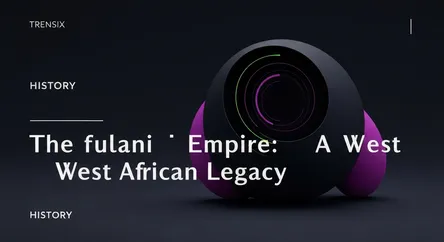History
The Fulani Empire: A West African Legacy

Explore the Fulani Empire, the powerful 19th-century Islamic caliphate in West Africa that shaped the region's religious and political landscape.
What is it?
The Fulani Empire, more formally known as the Sokoto Caliphate, was one of the largest and most powerful empires in West Africa during the 19th century. Founded by the Islamic scholar and reformer Usman dan Fodio in 1804, it emerged from a series of jihads (holy wars) against the Hausa city-states. At its height, the empire stretched from modern-day Burkina Faso to Cameroon, encompassing most of northern Nigeria. It was a confederation of emirates operating under the political and spiritual authority of the Sultan of Sokoto. The caliphate established a centralized administration based on Islamic law (Sharia), promoting scholarship, trade, and decades of regional economic growth.
Why is it trending?
The history of the Fulani Empire remains relevant due to its lasting influence on the culture, religion, and politics of West Africa. Its legacy is often discussed in the context of modern Nigerian politics, where descendants of the caliphate's aristocracy still hold influential traditional titles. Furthermore, historical associations between the Fulani people and the jihads that founded the empire are sometimes invoked in discussions about contemporary security issues and ethnic tensions in the Sahel region. The empire's history provides critical context for understanding the complex social and religious dynamics of this heavily populated and significant part of Africa.
How does it affect people?
The Fulani Empire fundamentally reshaped West African society. It was a major force in the spread of Islam, literacy, and Islamic law across the region, replacing many existing traditional religious and social orders. The caliphate's structure of emirates continues to influence traditional governance systems in northern Nigeria, where the Sultan of Sokoto remains a significant religious figure for Muslims. For millions of people, its legacy shapes their cultural and religious identity. However, the empire's formation also involved conquest and the enslavement of non-Muslim populations, creating historical grievances that can still resonate in modern inter-communal relations.